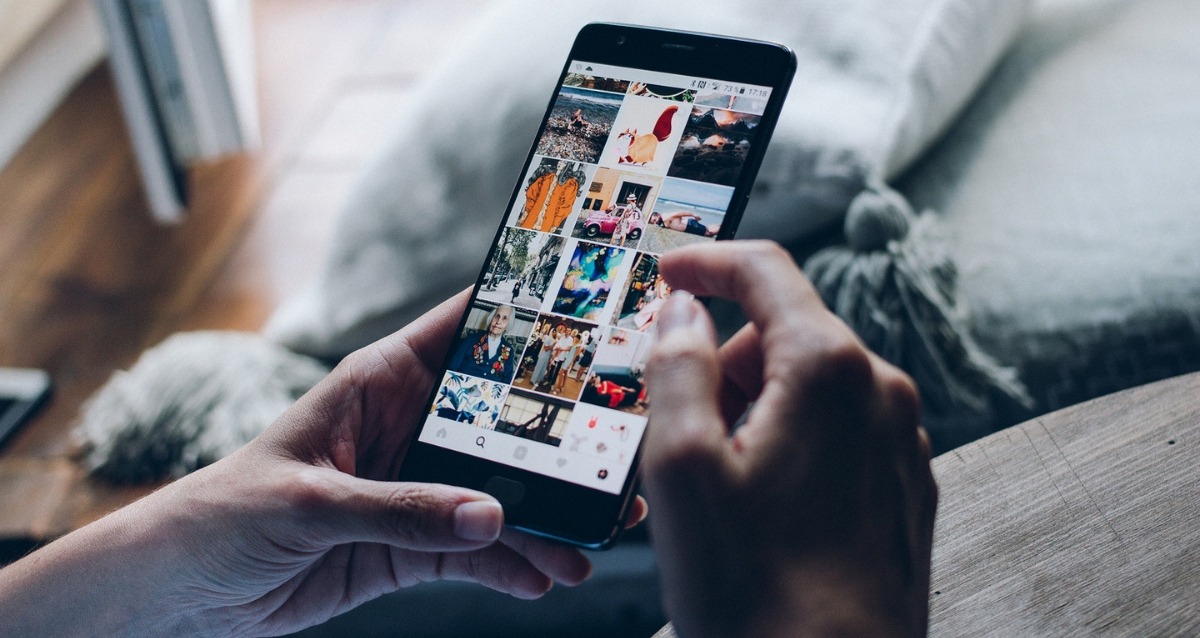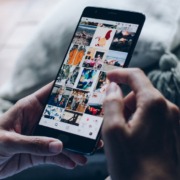 https://dappergoat.com/wp-content/uploads/2019/04/instagram-banned-hashtags.jpg 683 1024 Jeremy Tillman https://dappergoat.com/wp-content/uploads/2020/08/Dapper-Goat-Logo-Without-Artboard-300x93.png Jeremy Tillman2023-03-01 14:31:502023-03-29 12:44:52Banned Hashtags on Instagram – Updated!
https://dappergoat.com/wp-content/uploads/2019/04/instagram-banned-hashtags.jpg 683 1024 Jeremy Tillman https://dappergoat.com/wp-content/uploads/2020/08/Dapper-Goat-Logo-Without-Artboard-300x93.png Jeremy Tillman2023-03-01 14:31:502023-03-29 12:44:52Banned Hashtags on Instagram – Updated!What Coke’s Social Media Guard Means for Your Social Media Strategy
 If you don’t really get the big attraction of social media, you’re not alone. In fact, you might even get the impression that we are starting to see a social media backlash with recent funny but critical ads from Coca Cola, Buick and Applebee’s.
If you don’t really get the big attraction of social media, you’re not alone. In fact, you might even get the impression that we are starting to see a social media backlash with recent funny but critical ads from Coca Cola, Buick and Applebee’s.
This week, Coca Cola premiered a YouTube promoting a new device they call “Social Media Guard” to encourage people to stop using social media and start connecting with the world around them. The device is a Coke branded funnel that people wear on their heads, like the lampshades that are put on dogs to keep them from fussing with wounds. It’s funny, and it has over 2 million views so far. It was inspired by a cartoon in the New Yorker last year where a man wore a lampshade like that on a date to keep himself from checking his phone every few seconds.
The message touches on an issue that many people have commented on recently. The mobile revolution has had social implications such as texting while driving and a strange phenomenon being studied by psychologists now where people enjoy taking photos of their food more than they do eating it. Social media is taking the heat, but the issue is really that technology is becoming more important in our daily lives.
Buick Wants You to Get Off the Phone
A few months ago, Buick introduced a very similar sentiment with the song “Get Off the Phone” by YouTube superstars Rhett and Link. Buick promoted the song on their Tumbr #InTheMoment by saying, “We all get lost in our smartphones. But imagine what you’ll find if you put the phone down for a minute. For a meal. For a conversation. For a road trip. Look up, live life, and join us in the moment.”
There are several curious aspects of Coke’s campaign in comparison to Buick’s, though. In both cases, it could be construed as an old world corporation trying to prove it is ahead of the curve by using social media to criticize social media. However, in the case of Buick, it makes sense because of the rising national legislation against using phones while driving. Obviously, if you have to make a choice, Buick wants the phone to lose.
Buick vs. Coke
While Buick clearly has reasons to discourage phone use, the benefits to Coke sales is less clear. Buick’s funny song on YouTube ends up criticizing Facebook, Twitter and Instagram as much as texting because those are the things that people use their phones for the most, according to Pew Research.
In Coke’s fake ad, the device is called the Social Media Guard, it only prevents people from seeing their phones. Wearing the device, the people in the ad look at each other and the sunset, but there is no reason they couldn’t just access social media on a laptop (or Google Glass, for that matter). What does it mean that Coke equates looking at a phone with social media use?
There are really two messages here. One is that mobile phones are now the primary way people access the web and that they are using their phones primarily for social media. That’s an interesting conclusion and not exactly wrong but a just little premature.
Our Mobile Planet
According to a new study funded by Google called “Our Mobile Planet,” the top places where people prefer to browse the web using their mobile phones are:
At home: 96 percent
On the road: 83 percent
In-store shopping: 76 percent
Eating in a restaurant: 70 percent
At work: 69 percent
Experian Marketing reported last year that people on average spend 27 percent of their time online on social media sites and another 15 percent on entertainment, which can include social sites like YouTube and Pinterest.
Coke’s larger message, though, is that they understand their demographic. They want to connect with people who are ambivalent about their social media use. On one hand, Coke is making fun of people using social media instead spending more time with their friends and family in the real world. At the same time, Coke is only sending this message out by social media rather than television or other forms of advertising.
Coke’s ad gently teases its customers, comparing them to injured dogs that don’t know how to take care of themselves. That has the potential to offend a lot of people. So far, viewers have taken the Social Media Guard as nothing more than just a funny ad, but humor often has a way of missing the mark and driving away the core audience, sometimes permanently.
The Dangerous Strategy
Two years ago, Applebee’s went down the same road as Coke with comedy videos shared on their Tumblr under the seemingly reasonable tagline of “Life is Better Shared.” Video blogs about Facebook, Twitter and Pinterest accounts were ridiculed for preventing people from sharing in real life. These ads featured the “Girls’ Night Out Goddess,” a middle aged woman drinking cocktails and harshly critiquing social media blogs by other women. She also looked directly into the camera and accused the viewer directly of wasting their time online. The videos described their heroine as “wacky, irreverent, from back in the day.” People responded overwhelmingly negatively, with statements like, “Applebee’s thinks women need to get offline.”
Applebee’s had to kill the campaign and scrub as much evidence as they could of its existence. On social media, though, nothing is ever really forgotten. Applebee’s tried to make amends by releasing a statement, “Applebee’s loves social media and fully embraces it. We’re using Youtube, Twitter, Pinterest, Facebook and Tumblr to share our message and to interact with women. We totally embrace all things social media, and encourage brands to develop your social media strategy that is tailored to your voice, style, and message. Our message is simple: Life is better shared. Preferably face to face with your girlfriends at Applebee’s. We all know we spend a lot of time online. Our message is about balance.”
Perhaps the reaction to the Coke video hasn’t completely played itself out yet and more Applebee’s-style reactions will develop over time. Humor is essentially surprise, and people don’t always like surprises in their advertising, especially when they have the feeling that they may be the butt of the joke. There seems to be a trend in advertising humor towards things that are just a little offensive. Offensive enough to spark debate and avoid the dreaded title of “politically correct” but gentle enough not to start a flame war. The companies that are succeeding at it are either so big that they can afford a little controversy, or so small that they have nothing to lose by going viral, even if the reaction permanently turns away a certain segment of potential customers. Those that remain will be surprised to find a company shares their views and more loyal fans in the end.
What are your opinions about the Coke, Buick and Applebee’s videos? Are they clever and fun or trying too hard to catch a wave?
For help with developing your social media strategy, contact us today!











